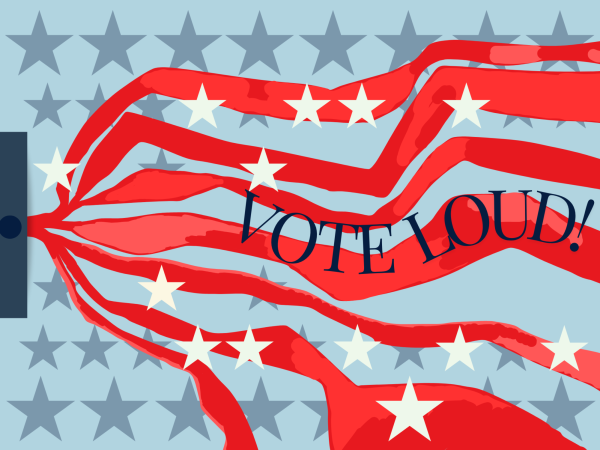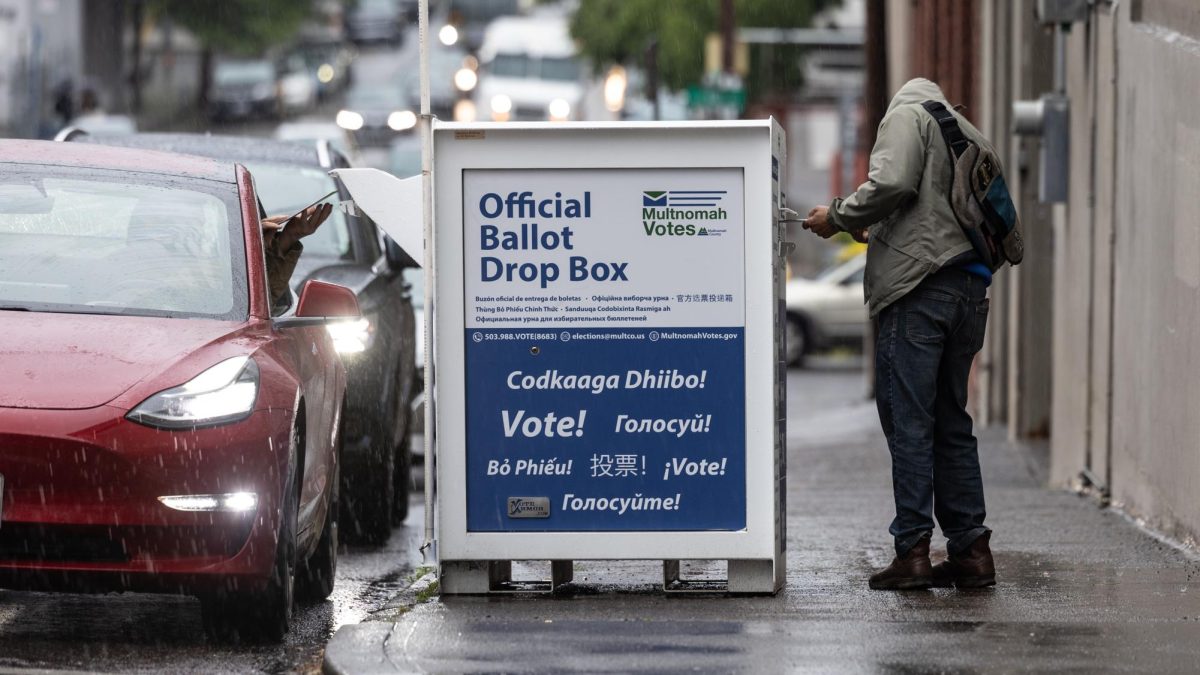Millions of Americans will cast their ballots this November in an incredibly close election — every vote will count. As of October 2024, Democratic nominee Kamala Harris is polling at 48.2% while Republican nominee Donald Trump is polling at 47.4%. Among these voters will be teenagers, many of whom will be voting for the first time.
Recently, young people, a sizable portion of the electorate, have had powerful effects on the results of elections. At the same time, youth in the U.S. are significantly less likely to cast their ballot in elections, which experts say is mostly due to voting registration difficulties. To increase young voter turnout, many programs and organizations have formed to help encourage people to vote.
One of the most prominent of such organizations in Portland is Next Up. The state-wide non-profit involves students and young people by having them present slideshows to their peers with voting registration instructions.
Grant High School senior Hanako Duff used to think the sentiment “one-person, one-vote” was exaggerated until she became a youth organizer for Next Up. Her outlook changed when she began giving voter registration presentations at Grant. “If we do the presentation (for) just 10 classes, and if only 10 students (from each) just pre-register or register to vote, that’s like, me personally, I made … 100 students (register).”
Grant Leadership has been trying to get more students to register and pre-register to vote. Grant Senior Representative Cecily Wagstaff is part of the leadership team working to inform students about voter registration. While she says it is difficult to tell exactly how many students have registered, she can feel a sense of enthusiasm from many seniors around voting. “There’s a reason that 18-year-olds are allowed to vote,” she says. “I think that it’s important to use that power in the best way that you can and … make a difference and vote for what you believe in.”
Oregon law permits people, including youth, to automatically register or pre-register to vote when they get their driver’s license. According to the Alliance for Youth Organizing, over 225,000 Oregonians have registered to vote through the program.
In addition to registration, voter education is a crucial issue for the City of Portland in the 2024 election cycle; they want to combat misinformation about the new ranked-choice voting system the city is implementing for the election of the mayor, auditor and 12 councilors.
According to the city government, ranked-choice voting involves voters ranking their top six choices in order of preference. The candidate with the most first-choice votes will win the election. If the role has multiple positions — for example, district councilors — the process repeats to determine the second-choice candidate.

Ranked-choice voting has already been implemented in state and local elections throughout the U.S.. However, to ensure that every voter understands the new system before Election Day, the city is giving out grants to voter education organizations. Included in these grants are organizations that support youth voting registration such as the Latino Network, the Native American Youth and Family Center, the Urban League of Portland and Next Up.
While not all eligible voters will cast their ballot this election, local organizations along with Grant students have been putting in the work to increase youth voter turnout. As they learn to become more
engaged citizens, young people across Portland are discovering, as Duff puts it, that “everyone voting does make a difference.”




























